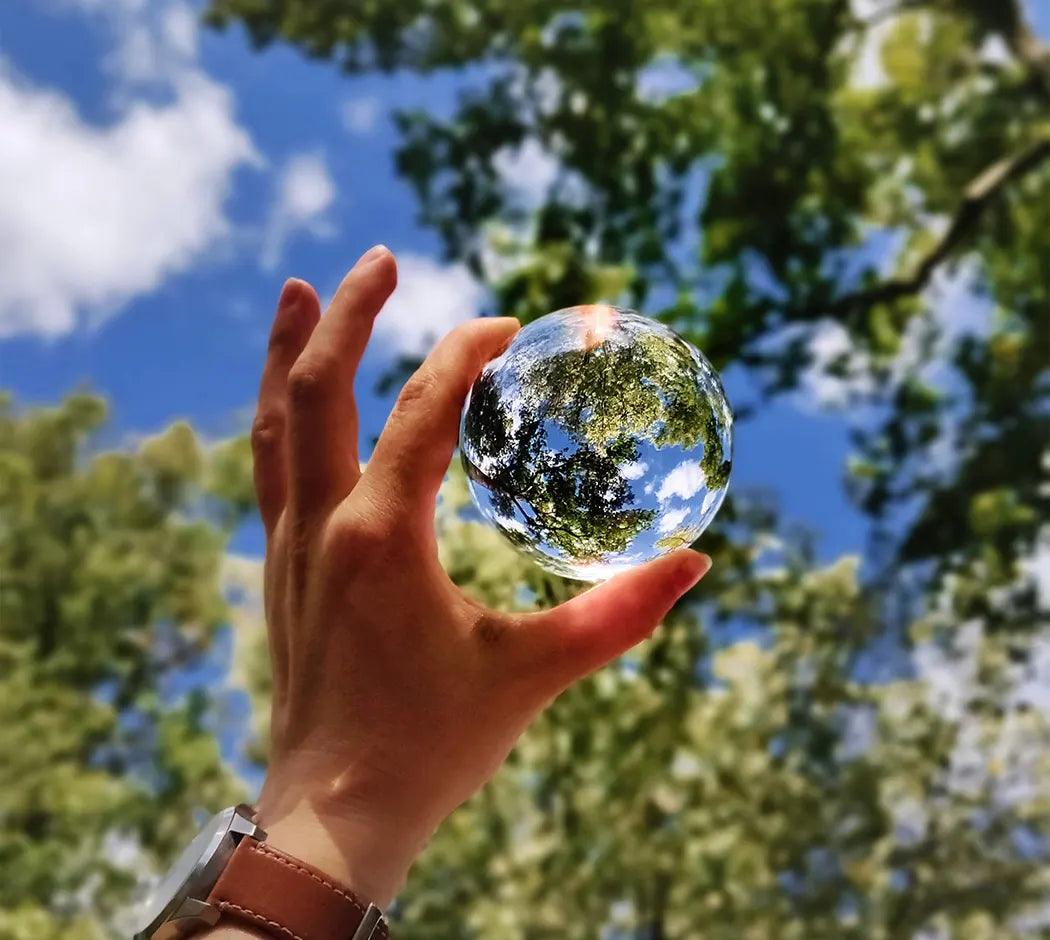Article Contents
- Recycle
- Compost
- Shop Local
- Use Less Water
- Use Less Energy at Home
- Ride a Bike
- Take Public Transportation
- Reduce Food Waste
- Eat Less Meat
- Use Less Plastic
If you're interested in leading a more sustainable lifestyle, you're not alone. More and more people are interested in reducing their impact on the environment and making sustainable choices. However, sustainable living can sometimes feel daunting and it's not always clear where to start. In this blog post, we'll share 10 easy ways you can be more sustainable in your everyday life. These tips will help you reduce your carbon footprint, save money, and live a more environmentally friendly lifestyle.
Recycle
Recycling is one of the easiest ways to have a positive impact on the environment because it helps to reduce the amount of waste that goes into landfills. It’s pretty engrained into our daily lives at this point, but you’d be surprised how much waste doesn’t actually get recycled! According to the EPA, it is estimated that 75% of waste produced in America is recyclable, but only 32% of it gets recycled. Compare that to Germany’s recycling rate at 66% and we’ve got a long way to go here in the states. It all starts with taking the time to actually separate our waste into what is recyclable and what is not, then disposing of it accordingly. Yes, it takes a little extra time, but it’s certainly achievable!
Compost
Composting is the natural the process of breaking down organic matter and converting it into a nutrient-dense fertilizer or mulch that can be used to enrich soil. Tons of everyday household items can be composed at home such as food scraps, yard trimmings, coffee grounds, paper tea bags, eggshells, dry leaves, brown paper bags, and cardboard. The list goes on and on!
You can compost certain items right in your home in a kitchen compost bin, or the backyard in a compost pile. Others can be composted at local garden in your community, and you can typically find these locations on your city or town’s website.
Shop Local
Community is everything, and shopping local is one of our favorite ways to be sustainable! It allows you to reduce your carbon footprint by minimizing transportation, help support local businesses, find amazing locally made products, give back to your community, and create new personal connections. Not to mention, it’s extremely convenient! Keeping your money local by supporting small businesses is a great way to ensure your community continues to develop.
Use Less Water
It’s easy to take water for granted. It’s so readily accessible and we use it almost constantly every day! But this essential commodity is a finite resource, which must be managed properly, and doing so is easier than you think!
Here are a few simple steps you can take to reduce your water usage.
- Take shorter showers – did you know that the average shower lasts 8 minutes and uses over 17 gallons of water? Save water by getting in and out quickly!
- Buy a flow-restricting shower head – This is an inexpensive way to limit your water consumption. These faucets can be found at your local hardware store.
- Never let the faucet run – Make sure to turn your sink off while brushing your teeth or cleaning vegetables!
- Check for leaks – This sounds like a no brainer, but a leaky toilet can waste 100+ gallons of water per day!
- Use dishwasher and washing machine only when full – These two appliances use the most water, so be sure to only use them when you have to!
Use Less Energy at Home (or Use it More Efficiently)
Making some upgrades around the house to use energy more efficiently is a smart way of reducing your carbon footprint. Adjusting your daily behaviors along with a few of these upgrades with save you a lot of energy over time!
- Use natural light – Open up the curtains! Save on that electricity bill by letting natural light flow throughout your house!
- Replace lightbulbs with LED bulbs – LED bulbs use up to 80% less electricity than traditional incandescent light bulbs. Making the switch to LED is a huge first step towards a more environmentally friendly home.
- Install energy efficient windows – Energy efficient windows prevent the conditioned air from being released, saving you both energy and money on your electric bill.
- Weatherize the home – Weatherizing your home allow you to keep it at a constant temperature. Start by getting a home energy audit from your energy provider.
- Use a smart power strip – Did you know that many devices use electricity even when turned off? Using smart power strips is a great way to make saving energy and money completely effortless.
Ride a Bike
No gas = no pollution. Riding a bike is a low-impact form of transportation that doesn’t require fossil fuels! Replace your car with a bike for your morning commute and you can save thousands of pounds of carbon emissions each year. Another obvious benefit of riding a bike instead of a bus is that it’s great for your physical health! You can prioritize both your health and the health of our planet by making the switch.
Take Public Transportation
Did you know that 85% of all CO2 emissions are caused by transportation? By trading in your car for the bus you can actually decrease your transportation CO2 output by up to 45%. That’s a crazy number! Not only is this great for the environment, but the improved air quality means that your community will be healthier too. Fewer cars on the road also means less congestion and noise pollution, making life just a bit easier.
Reduce Food Waste
A third of all food produced gets thrown away. Think about that for a second. A THIRD! And 95% of this food waste winds up in landfills. The benefits that come with reducing the amount of food we waste are numerous. By purchasing only the food you need, money will be saved on food handling, preparation, and disposal. You will also be reducing the amount of methane emissions from landfills by properly composting of any waste you do produce or donating any food you don’t intend to eat!
Eat Less Meat
One thing we can do to have a significant impact on the climate crisis is eat less meat. By reducing the demand for beef, we are actually tackling climate change in two areas. The first, is we’d reducing the amount of methane in the atmosphere. Cows produce an enormous amount of methane – an emission that contributes to climate change in a big way because it lingers in the atmosphere for around 9 years. The second, is we’d prevent forests from being further destroyed to make way for land for cows to graze on.
Use Less Plastic
Did you know that less than 10% of plastic is recycled globally? And a recent Greenpeace report showed that in the United States, 85% of plastic waste winds up in landfills and only about 5% is recycled. This seems to be due to the misconception that just because something is plastic, it can be recycled. In fact, many plastics that wind up in the recycling bin aren’t recyclable! So, what’s the best way to prevent plastic from ending up in the landfill? Simply use less of it. Bring a reusable bag for groceries, don’t buy things packaged with excess plastic... the list goes on. This is one way we can have a very immediate impact on the climate crisis. (Greenpeace Report)





